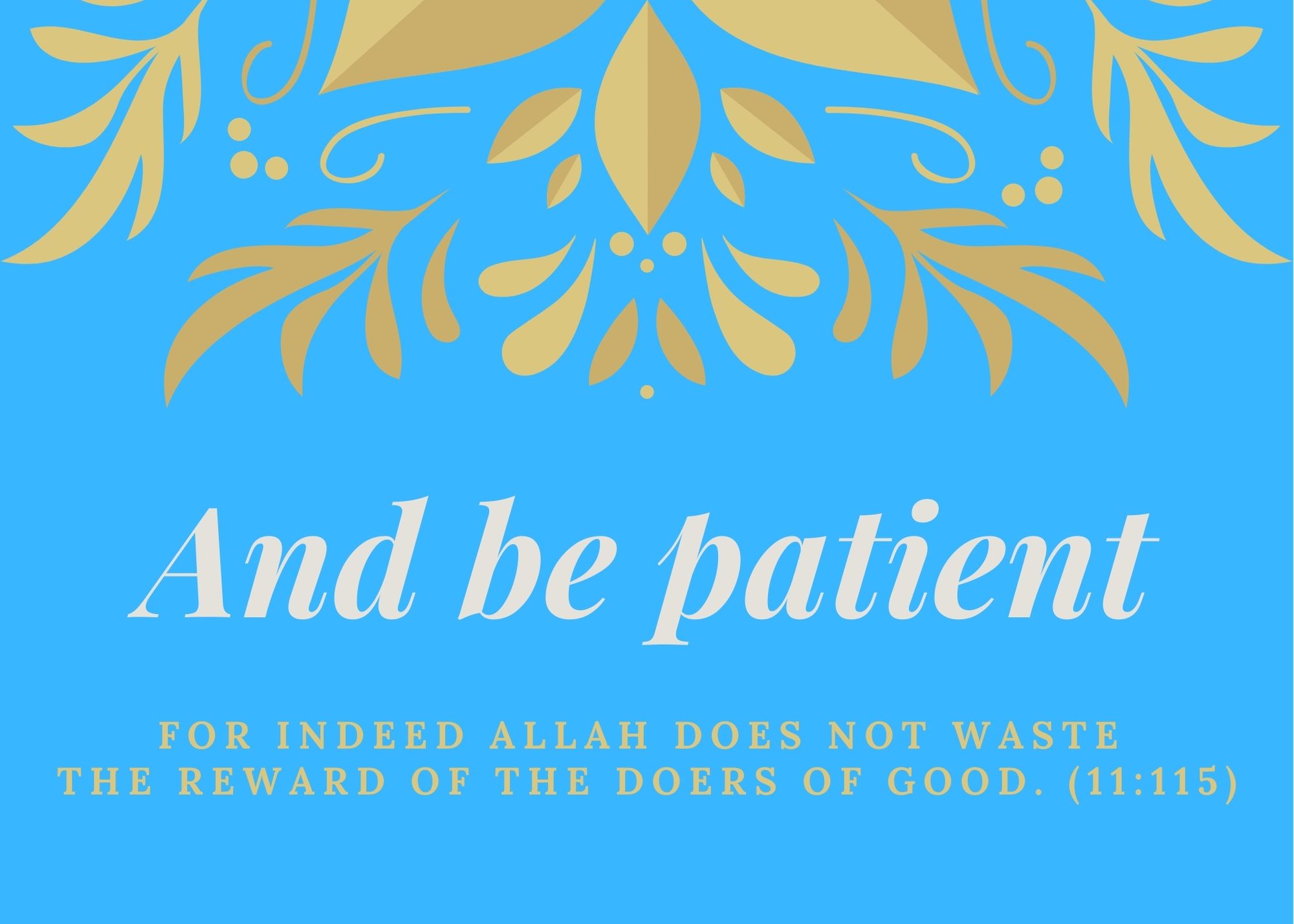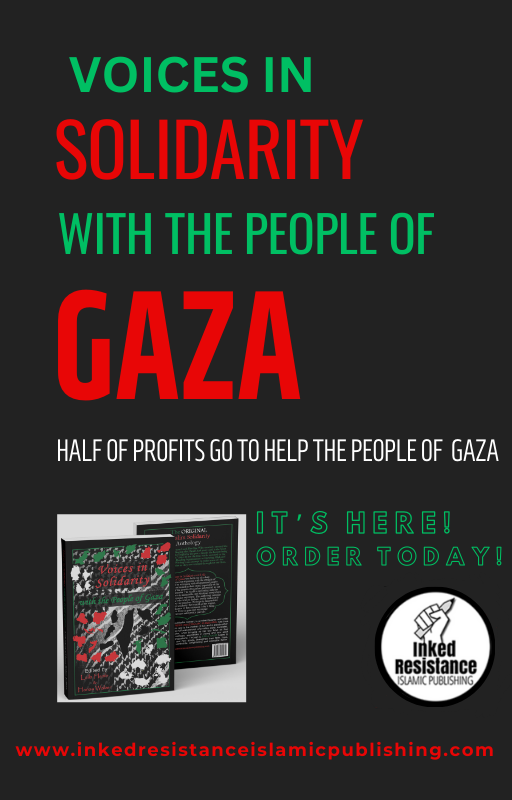Heal the World and Your Self
Blog Post 33
August 26, 2020

For the past while, Muslims have been listening to lectures about social justice, Black Lives Matter, the racist history of the US, the “pandemic” and the US elections. Ramadhan has come and gone as has Hajj and we haven't been
frequenting the masajid like usual due to fear of the virus. Now Muharram has arrived and just like the previous months, most masajid, Husayniyahs and centres are conducting lectures, majlises, azadaris, marsiyas, nohas and matams on-line, inshallah.
While some of us don’t like on-line lectures and would rather come out to the masajid and meet up with Muslims and the ulama, Allah Subhanahu wa ta’ala has, in His Wisdom, offered us the opportunity to listen to and learn from varied ulama, speakers, activists and reciters spread over numerous masajid and organizations throughout the entire world. But especially for those of us who reside in the western world, and in particular the Americas and the Caribbean,
we have had the opportunity to get to know
and come to understand the unique, relevant
and inspiring messages of our homegrown activists
and ulama and especially our ulama
of African descent, Al-Hamdulillah.
It’s been a long haul since we first learned of the virus with all the “rules” of washing, touching, wearing, two metres/six feet, circles on floors/park grass, arrows, etc., etc., etc. And in the midst of it all, racist cops keep murdering Black men, boys and women. Breonna Taylor was murdered by three racist cops busting into her home on a no-knock entry on March 13, 2020 in Louisville, Kentucky and George Floyd was murdered by a racist cop, who smashed his knee into Mr. Floyd’s neck for almost nine minutes cutting off his air supply on May 25, 2020 in Minneapolis, Minnesota. Mr. Floyd’s killing was filmed on video while he pled for his life and so the police brutality again hit the airwaves, sparking an ongoing pouring into the streets of people of all colours and persuasions voicing their disgust and fed-upness of the unjust system that America is. And it’s continued ever since with the latest shooting death of Trayford Pellerin by racist cops who fired 11 shots at him in Lafayette, Louisiana on August 21, 2020 and the merciless shooting of Jacob Blake, Jr. in the back seven times by a Kenosha, Wisconsin racist cop two days ago while his three children watched.
The “right” are mad cause they can’t go to church and sing, but “those people” can come out in crowds and scream “No Justice, No Peace,” “I Can’t Breathe” and “Black Lives Matter.” The “right” are thrilled when the cops, national guards and feds come out in full force, in riot - no - military gear and knock “those people” around, firing rubber bullets at eyes, detonating flash-bang grenades and blasting tear gas to clear the streets and gain “control.” The “right” are excited when their white supremacist buddies drive cars into crowds; murder “those people” with chokeholds, knees, tasers, clubs and bullets in broad daylight, on back streets and during no-knock entries; hang lynching ropes at construction and public sites; spray bullets in churches and masajids; and get off scot-free from charges and aren’t even arrested in the first place. The “right” are damn angry when their racist heroes’ statues are toppled and confederate flags are torn down by “those people.” On a side but completely related note, the “right” are also totally upset that land acknowledgement statements are being read when meetings and programs begin, recognizing that the land of the Americas is stolen land, like they’re saying, “It’s our land now so get over it. You lost. We won. And we’re not leaving.”
And so many Muslims started to realize they were going to be considered complicit in the oppression of the poor and downtrodden of America if they didn’t get with the program and stand up against injustice or at least say that it is sad and wrong. It’s been a history lesson to say the least. Of course, most Muslims who were born here already know what’s happening, at least most Muslims who are Black, woke and/or were born before say 1970 or so or have parents who were. And most Muslims who can think clearly and those many young and new adults who can see clearly know that their fellow Black people and Native people have gotten the wrong end of the stick since forever, and they’ve been mobilizing and trying to help ease the pain and suffering in any way they can. Yet, many Muslims who’ve immigrated to the west and/or were born to immigrant parents may not have gotten the message. So it’s hoped they’ve gotten it now, inshallah.
Essentially, there’s a choice to be made.
While many of us made that choice long ago and have been trying to keep the faith and stick with the oppressed or at least stick up for the oppressed, many of us don’t know what to do about it. That’s where this blog post’s headed.
There’s a couple of points.
One’s about patience.
Muslims, and other oppressed peoples, have been fed the lie that they should and have to be patient. Patient with their suffering, patient with the lack of food, shelter, health, jobs, money, education, patient with the murders, wars, maimings, torture, bombings, genocides, famines, poisoned water… Black people stolen from the African continent and enslaved were told to be patient, too. That their reward for obedience and patience will be in the Hereafter with the “Christian Jesus.” Native people, almost exterminated from the land, were told to be patient, too, and their reward will be in the same place with the same “white saviour.” Being patient, in the oppressors’ definition, means, in the words of Ayatullah Sayyed Ali Khamenei, “tolerance of unpleasant circumstances.” He continues:
“For an oppressed and vacuous society steeped
in corruption and decadence,
patience as defined above will become
the biggest tool and pattern
for oppressors and corruptors
for maintaining the status quo,
by keeping the society
in a state of backwardness.
“When poor and backward nations
exposed to all kinds of problems and misery,
or oppressed masses crushed under brute oppression,
or societies faced with moral corruption,
poverty and human suffering,
or any individual or group trapped
in a cesspool of misfortune and calamities
are told to be patient,
the first result will be the taking
of that bitter and fatal dose,
i.e. to suffer with, and not to overthrow,
the existing state of oppression.”
In other words, not only won’t the people mobilize and overthrow the oppressors and replace the system of oppression, they will instead remain indifferent and naïve, happy and content that their patience is indeed a great victory for which they will be rewarded. And of course, this attitude, this mentality, will be to the oppressors’ advantage. (Ayatullah Khamenei)
So what to do?
Have we misunderstood the meaning of sabr, of patience?
I would say, yes, many Muslims have misunderstood or been taught the wrong definition. This definition is against human nature, our fitrah, as anybody can see when a small child is being treated unjustly, they will fight back – not sit and take it.
Sabr is in more than 70 ayats (103 times in all its derived forms) of the Holy Qur’an. It is glorified and those who possess sabr are praised by Allah Subhanahu wa ta’ala. That's because:
The Islamic definition of patience is,
as stated by Ayatullah Khamenei,
“the resistance shown by man [people]
on the road towards perfection
against mischief, corruption and degradation.”
The obstacles we face in life are both internal – such as love of self, love of comfort, pride, laziness, fear, despair, selfishness – and external. The choices are only two – dropping out and giving up when faced with dangers and hardships or continuing on by resisting and overcoming each barrier with determination and enthusiasm. This is patience – a “sharp and decisive weapon.” It is what we use to stand up against obstacles and conquer them in order to reach our goals, our destinations, and ultimately the real and final objective. In fact, without these obstacles we would not reach perfection as a human being. (Ayatullah Khamenei)
It is the resistance we offer against these obstacles
that enables us to discharge our duties,
undertake each step, procced on each road
and accomplish each result. (Ayatullah Khamenei)
The other point’s about action.
Now that we know what sabr means, it’s important for Muslims to understand what actions we can take to be successful against internal and external injustices. Mostly, we’ve been instructed in how to conquer our nafs, the love of self and the internal diseases of our soul. Well, the instruction we get is not always exact. People need to be instructed exactly.
The other day I was listening to a lecture and the speaker spoke about how each of us should be having a teacher, a personal spiritual guide, to pinpoint what we need to correct and ways or precise steps on how to do that. I was thinking, “That sounds like a luxury, another privileged status, something everyone can’t get.” What I mean is who can afford to “pay” a spiritual guide, much less find one, find the time, find the right one, know how to find the right one, etc., etc., etc.? I'm praying we can all have a personal spiritual guide, inshallah. So while we definitely can’t skip the internal obstacles, let’s move on for a minute.
The external obstacles or injustices are glaring, public, oppressive, destructive and deadly. (Yes, I know, the internal ones are, too.) What we need to know, however, is what to do when we’re faced with them or view them or hear about them. Do we act? Do we tell others? Do we endanger ourselves? Do we speak out? Do we write, post, broadcast, tweet, take a pic or video, make it viral? How do we know what’s “safe” to get involved in? How do we keep “safe”? How do we not get misled, hurt, confused, dead-ended, detoured off the straight path?
What I’m after and many other Muslims - and especially the young people who don’t want to wait, who have the enthusiasm, the gumption, the get-up-and-go attitude to do something now, before it’s too late – want to have is a list of what to do. For example, we’re told to be nice, be kind, be helpful, be generous, be charitable, be loving, be thoughtful, be brave… That’s fine and dandy if the definition of all those words is clear. Remember patience?
So, let’s take charity as an example.
Some Muslims teach their children to put aside a portion of their allowance or money gifts for the needy in a jar, homemade bank, pouch, billfold, purse, box, etc. Then every so often, the children take that saved money and donate it or give it to a needy person(s), charitable organization, etc. or they purchase something with the money and give that item(s) to a needy person(s). I mean the child does it themselves, with their own hands. They see where the money is going. To whom it’s going to (without embarrassing the recipient). The child knows what their money is going to do, how it’s going to be helpful. It’s not just giving the money to the masjid, where it vanishes into the “building fund” or “sadaqah box.” For older children/young adults, this can be further expressed in actions, such as: volunteering for a charity, helping to repair/build houses for the needy, making and giving clothing to others, purchasing food and essential items for others, buying and giving school supplies to needy children, donating their used clothing, books, electronics, etc. directly to needy people...
Charity is not giving out water bottles to people who can buy water bottles. Think about the plastic at least. Charity is not giving your torn-up, smelly, stained clothes to Value Village, Salvation Army and/or Goodwill where they sell it to poor (and even wealthy) people, where homeless people, for example, can’t benefit from it. Check out these and other second-hand and thrift shops to see where the money your stuff made is actually going and who’s benefitting from it. Charity is not donating money to the hospital. They have donors already who need the tax break. Your money is most likely going to get squandered into overhead and administrative costs or board dinners and parties, unless you’re giving enough to get your name in the news or on a plaque or statue in the hospital. Charity is not giving $20.00 a month to an orphan, unless you know that the child reaps the full benefit of that $20.00, instead of 10% or 20% of it.
Listen. I’m not saying you can’t do those things. Just make sure the giving is legit and actually helps needy people. Just be sure you’re not doing those things to be seen, to tell others, to put it up in your room or on the fridge or in your resume or on your facebook/instagram/twitter or in the newspaper or on a plaque or, God forbid, statue. Just be sure you’re not doing those things to feel good about yourself, to feel that “At least I’m doing something.”
You can feel good that you’re a charitable person.
But it should be about the giving, the receiver,
and not about you.
What is crucial to understand is that serving the oppressed, actually getting in there and doing something up close and in person, helps you to be charitable, kind, generous, helpful, loving… It’s like a circle. The more you assist the oppressed, the more you work on conquering your nafs and building your Islamic self, the good traits of a human being, the submissive to Allah Subhanahu wa ta’ala person we’re all supposed to be, inshallah. Just asking Allah to help you be kind and loving isn’t going to work.
You have to act kind and loving and
choose situations and put yourself in them
so you can be kind and loving,
and then when you’re acting kind and loving,
inshallah, you’ll become more kind and loving.
This goes for everything. You don’t need to wait until someone tells you it’s okay to get out there and do something. Allah Subhanahu wa ta’ala gave you a mind and a heart to make your own decisions. So do what you can, what’s available for you to do. Find your love and caring, your niche, your passion, your creativity, and get out there and just do it.
You’ll be working in the service of Allah
and humanity and, inshallah, the oppressed of the world,
of the country you live in, your neighbourhood,
your masjid, your family and your self
will benefit from the light that is you.
Isn’t this after all what Muharram, Ashura, Karbala, Imam Husayn (a.s.), Lady Zainab (a.s.), oppression and oppressors versus the lovers of Allah Subhanahu wa ta’ala are all about? If you can’t say yes, then we’ll need to go back to the beginning, back to the drawing board. L
Contact us to suggest ideas on how to serve Allah Subhanahu wa ta’ala and the oppressed of the world while building a better Muslim you, inshallah. And we’ll blog about them to help us make the world a better place, inshallah.
Listen to and Watch Heal the World @ Heal the World
(Wait until after Ashura/Muharram to listen if you want)
References
Khamenei, Ayatullah Sayyid Ali. (1999). Discourse on Patience: Lectures of Ayatullah Sayyid Ali Khamenei. Trans. By Sayyid Hussein Alamdar. Qum, Islamic Republic of Iran: Ansariyan Publications. Available at https://www.al-islam.org/discourses-patience-sayyid-ali-khamenei
Jackson, Michael. (1991, 1992). Heal the World. Youtube.com. Available at https://www.youtube.com/watch?v=BWf-eARnf6U


